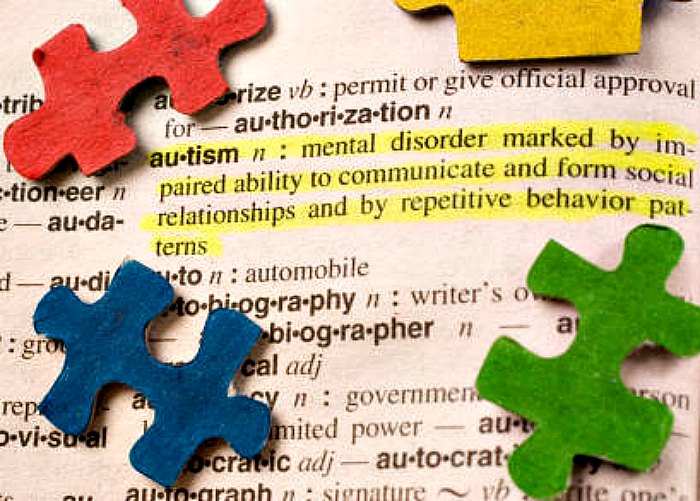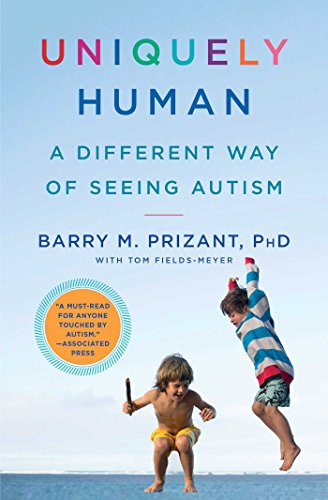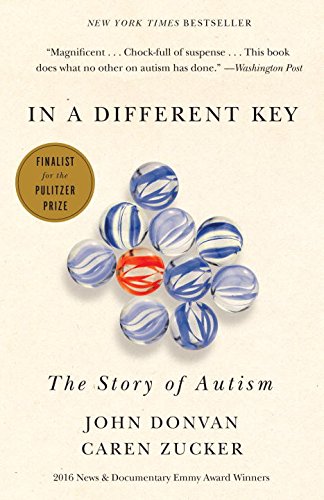Autism Spectrum Disorders can be…well confusing. No two children are alike. No two cases are the same. Doctors are still figuring out the ins and outs of the spectrum. Misinformation is plentiful. It can definitely be a beautiful mess to navigate.
![]()
I am not a doctor or a therapist.
I do not have all the answers.
However, I am a mom raising a child with autism and an educator who worked in early intervention.
I am not going to try to pretend to be an expert in this – because I am by no means an expert here. But, I am going to give you my take on it all as a family member of an Autistic child.
Our Autism Story:
When my daughter was first diagnosed with ASD we were told she would be non-verbal for life.
Fast forward five years and she was given the label of High Functioning. When she finally broke through her language barriers and started showing us that verbal communication was not a limit for her – it was a huge celebration. Yet, it was extremely frustrating as her services and supports started to be questioned.
To make matters worse we started getting comments out of the blue such as “She doesn’t act/look like she has special needs”…or “She must have outgrown Autism”.
Can I be totally honest with you?
As a parent, I felt like I was back at square one fighting for everything that helped my daughter get to where she needed to be. It was confusing as I was conflicted if I really need to be fighting for those services…I mean she was testing out.
RELATED POSTS: 13 Powerful Phrases Proven to Help an Anxious Child Calm Down
But, I knew better. You don’t outgrow Autism, and ASD isn’t something that needs to be cured. Those therapies were worth fighting for, not to cure my daughter or to make her fit in better with society, but to give her the tools and strategies she needed to accomplish the things that she wanted to do.
What is High Functioning Autism?
Let’s first establish what Autism is.
Autism is a disorder in the development of a persons’ social and communication skills. While that is a basic answer, it gives you an idea of the areas of life that ASD can affect. The range of severity will vary and how that manifest in each individual will be drastically different.
Resource: Grab your Free Calming Strategies for Kids email course.
High Functioning Autism doesn’t exhibit itself easily to those that aren’t already aware of an individual’s diagnosis. The ticks, fears, social and sensory issues, along with mild communication struggles are often easy to overlook if a child is labeled high functioning. Their delay in speech and language may not be as obvious. Many people only see the current state of a child and have no idea what progress they have made in the past.
Some signs of High Functioning Autism:
- Delayed initial speech but functional communication as child ages.
- Above average intelligence and logic at an early age.
- Difficulty in social situations – inability to understand or relate to peer groups.
- Lack of social comfort – seeming “mature” for their age. Not being able to understand jokes, sarcasm, humor, or typical roughhousing among peers.
- Obsessive actions regarding appearance, cleanliness, fears and social situations.
- Sensory issues. This applies to oral, vestibular, proprioceptive, tactile, auditory, and visual.
- Shortened attention spans.
- Prone to tantrums or meltdowns when overly tired or overly stimulated.
Are Functioning Labels Abelistic?
Yes.
Just a plain and simple yes. Ableism is discrimination in favor of able-bodied persons.
You may be thinking, my doctor used the term when describing my child. Or my child’s teacher used it when discussing their placement. And that’s true, the term while it no longer is an official diagnosis, is still frequently used. But, that doesn’t make it right.
Think of it this way – what sets the functioning label? What sets the “normal” bar? The spectrum manifests itself in every single person differently. Why should someone’s ability be judged on their language or other items on the HFA checklist?
It shouldn’t.
My Favorite Autism Resources:
This Outnumbered Mama has a FANTASTIC self-advocacy resource for parents. From understanding to support to empowerment this amazing resource has it all.
This online version of M-CHAT. The M-Chat is a tool designed for children ages 16 months- 30 months of age to help identify children who may benefit from a more in-depth Developmental and Autism evaluation.
This list of local resources put together by the Autism Society (it does not include every state –sorry).
The National Autistic Society. They are seriously amazing.
And this video that was written and produced by young people with Autism:
My Favorite Autism Books for Parents:
The Reason I Jump: The Inner Voice of a Thirteen-Year-Old Boy with AutismThe Spark: A Mother’s Story of Nurturing, Genius, and Autism
Neurotribes: The Legacy of Autism and the Future of Neurodiversity
Uniquely Human: A Different Way of Seeing Autism
In a Different Key: The Story of Autism
Carly’s Voice: Breaking Through Autism
p.s. Get on the Free Behavior Workshop waiting list now.
Learn More with These Autism Posts










I’ll be 62 in August.I was born with Asperger’s altho they had no idea back then.So no we don’t outgrow it.Thats rediculous😕
Absolutely it is 🙂 You would be surprised at how often I get asked though by a parent if their child will “outgrow autism”.